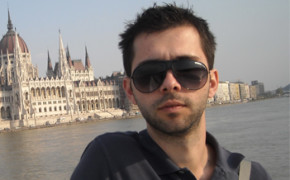The practice refers to a Private Certification Protocol Fish from Greece that offers exceptional quality of production and guarantees health and safety of fish.
The Hellenic Aquaculture Producers Organization (HAPO) was established in 2016, when the first 21 Members united their resources to forge a collective, national identity for Greek aquaculture fish, in order to promote them in selected domestic and foreign markets. The mission is to firmly establish the Greek identity and highlight the exceptional characteristics and competitive advantages of fresh farmed fish branded FISH FROM GREECE, which are raised with the utmost care and expertise by its members along the country’s unspoiled coastline.
HAPO has taken another bold step in developing the Private Certification Protocol FISH FROM GREECE, in partnership with TÜV Austria Hellas Inspection and Certification Organization. Owned by HAPO, its purpose is to ensure the superior quality of fresh Greek aquaculture fish, exemplify responsible practices and reinforce the position of Greek aquaculture producers in both local and international markets. In addition to the annual inspections that attest to the protocol’s validity, another key feature are the unannounced product controls in the marketplace and the audits, by independent certification bodies, that ensure compliance with the 6 pillars that the Certification Protocol is based on:
• Fish Health
• Environmental Management
• Fish Welfare
• Quality Characteristics of Farmed Fish
• Food Safety
• Social Responsibility in Fish Farming
Resources needed
HAPO is an organization that started with 21 members, but now includes 23 members, providing a wide range of benefits to its members, from mutual collaboration to development, consulting, and liaising with the authorities. HAPO is self-financed through the contributions and donations of its members.
Evidence of success
Today, HAPO counts 23 members whose overall production represents 80% of Greek aquaculture. HAPO members hold a dynamic role in enhancing the prosperity of several areas in Greece. The sector’s development in the past few years has contributed to higher employment rates through the creation of new jobs and increased expertise through the diffusion of technical knowledge. Members also contribute to the conservation of the environment with proper management and use of existing natural resources.
Potential for learning or transfer
This practice is transferable thanks to needs addressed common across European regions and to demonstrated achieved benefits that outweigh investment costs by far. This practice can be applied elsewhere as the needs of the operators are common in other EU countries. Meeting and discussing them, finding solutions together, each with their own competence, is something very simple to do. The needs in this sector are quite common across European regions and in this case it can be useful to follow the example of somebody that has developed a good practice that is demonstrating that achieved benefits outweigh investment costs by far.
Tags: Cooperation, Fishing, Good practice, Innovation, SME








